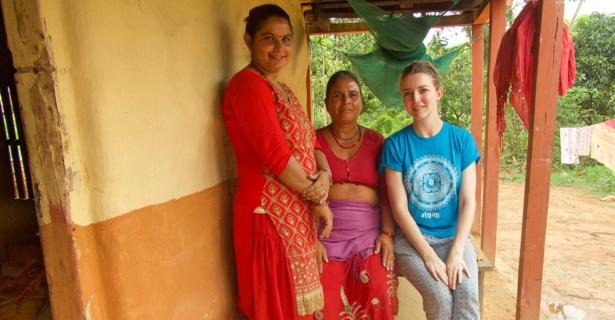My host organization for this summer is a Nepali NGO, the Center for Agro-Ecology and Development (CAED), based in Kathmandu. It has somewhat outgrown its name since its establishment in 1992, as its work now encompasses training and advocacy campaigns relating to women, girls and children’s rights; sexual and reproductive rights; and food security. As with the broad remit of its programs, CAED works throughout Nepal—there are only a handful of districts in which it doesn’t operate. CAED manages to tackle such a broad range of social justice issues in so many areas, despite its small size, by partnering with civil society organizations that work at the grassroots (often village) level.
After arriving in Kathmandu, I sat down with the organization’s Executive Director, Samita Pradhan, to discuss what my role would be while working with CAED this summer. We drew up a laundry list of tasks, three of which stand out as being particularly important.
The first will be to create a website for the Women, Girls and Child Rights Program (WoGCRP). CAED already has two websites: one for the organization and one for its largest project, the Women’s Reproductive Rights Program, but as of yet none for WoGCRP. This latest project was launched in 2016 and has already achieved excellent results in how it has empowered and educated vulnerable members of society on issues such as child marriage and menstrual isolation.
The second important task—to create a Facebook page and Twitter account for CAED—is closely related to the first.
Finally, I will need to draft a “shadow report” on behalf of CAED for the attention of the UN Committee on the Elimination of Discrimination Against Women. The Committee will be reviewing Nepal’s compliance with the UN Convention on the Elimination of Discrimination Against Women in late October/early November of this year. It will rely on NGO submissions to make this assessment and issue recommendations to the Government of Nepal. In order to provide robust evidence of the state of the realization of women’s rights in western Nepal, I will conduct a statistical study of the extent to which a law criminalizing chhaupadi (a traditional practice of banishing women from the family home and social activities during their menstrual period) is being enforced by local authorities.
Before getting started on all of these (and other) tasks, Samita suggested that I travel with the CAED team to the villages of western Nepal, to see their awareness-raising work on the dangers of chhaupadi and related issues in action. As I write this blog post, I have just returned from the field with a much clearer idea of the working methods of CAED and how best to profile them. I can only hope that, during the next two months, my advocacy and outreach efforts will do this incredible organization justice.

